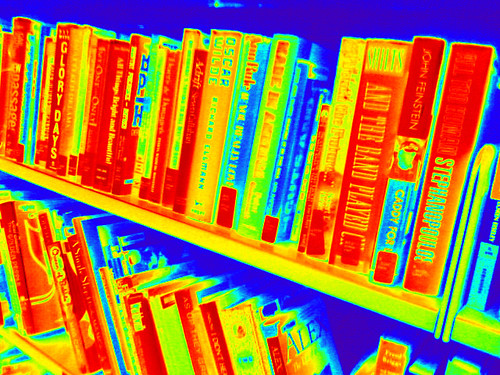


"In the end, this is not a book about what September 11 did to anyone. It is a book about what September 11 revealed about all of us and, to that degree, about the opportunities that this great tragedy provided to look at ourselves anew," Susan Faludi writes at the start of 2007's The Terror Dream: Fear and Fantasy in Post-9/11 America.

It's a brave and ambitious book written at a time when the height of 9-11 critiques was to suggest that maybe, possibly, Bush might have, at least slightly, misused the 9-11 tragedy. That's about as deep as most critiques of 9-11 went following the slap-down Susan Sontag received for thinking that adults (or at least readers of The New Yorker) might be able to take a clear-eyed approach to what happened.
Faludi is nothing but brave in the book and that may account for some of the reviews which were negative. (The book received much praise. We praised it here in real time. But it also received some of the nastiest reviews that any of Faludi's books have garnered.) A lot of people don't want the truth and some of the book reviewers didn't appreciate Faludi holding it up to the light.
A tragedy was used to sell a backlash as well as continued violence and war and, as Faludi documents in the second half, that's nothing new to the American landscape.
She goes historical, she goes sociological, she goes all out in this book about a mind-set which gripped the country and did much damage within the country and outside of it. Excerpt:
On the larger stage of national and international politics, as in New York, the need to pursue concrete concerns would be bartered for ceremonial scrip. In Afghanistan, our fantasies of female rescue actually got in the way of female security. Not only did White House vows to safe-guard the rights of Afghan women prove hollow, our woefully inadequate attempts at "reconstruction" only served to make their conditions worse. By 2006, the news was bleak: honor killings were dramatically on the rise (with 185 women and girls killed in the first nine months of the year), about 40 pecent of women reported that they had been forced in marriage, about 50 percent had been beaten by their husbands, three hundred girls' schools had been set on fire in the last year and several teachers killed, as little as 3 percent of girls were enrolled in schools in some regions and many had retreated to secret home classes, no women were appointed to the new Afghan cabinet, and the director of the women's affairs ministry in Kandahar had been gunned down in her own front yard. The pattern would repeat in Iraq, a nation that had made significant progress in advancing women's rights from the sixties to the eighties. Once more, the United States promised heightened security and freedom for Iraqi women, and once more our policies helped accomplish the opposite. By 2005, human rights organizations were reporting a sharp rise in rapes, abductions, and sexual slavery; severe restrictions on women's ability to travel, go to school, and work; and the return of Sharia law in a U.S.-brokered constitution that also restricted women's reproductive, employment, marital and inheritance rights. "Misery gangs" romaed the streets, tormenting and beating women who did not dress or behave "properly." In Basra, it became a capital crime for a woman to wear pants or appear in public. By 2005, several women's rights activists and female political leaders, along with one of the three female members of the Iraqi Governing Council, had been murdered, and even Bush's former female supporters in Iraq were in despair. "I want the American people to know that our dreams are gone, our work was in vain," wrote Raja Kuzai, an obstetrician and former member of the Iraqi assembly's constituition-drafting committee, wh once hailed Bush as "My Liberator." "There will be no future for our children and our grandchildren in the new Iraq," she said. "The future is for the clerics."
At 296 pages of text, The Terror Dream is about half the size of Faludi's two previous books (Backlash: The Undeclared War Against American Women and Stiffed) but it packs a punch and is one of the ten books of the last ten years that we highly recommend you rush to your library to get a copy of if you haven't already read it. It'll provide you with a layer of understanding that you will not find elsewhere. It's a maverick book from a truly one-of-a-kind writer.
In this series of ten important books of the last ten years, we've, so far, selected "Joyce Murdoch and Deb Price's Courting Justice," "Anthony's Iraq: The Logic Of Withdrawal" and "Tori's Piece by Piece." Due to the Great Recession, your local libraries are both overtaxed (seeing more patrons than ever before) and underfunded. Make a point to check out your local library or local branch of your library and consider letting your local representatives know that you support increasing the budget for the library.
